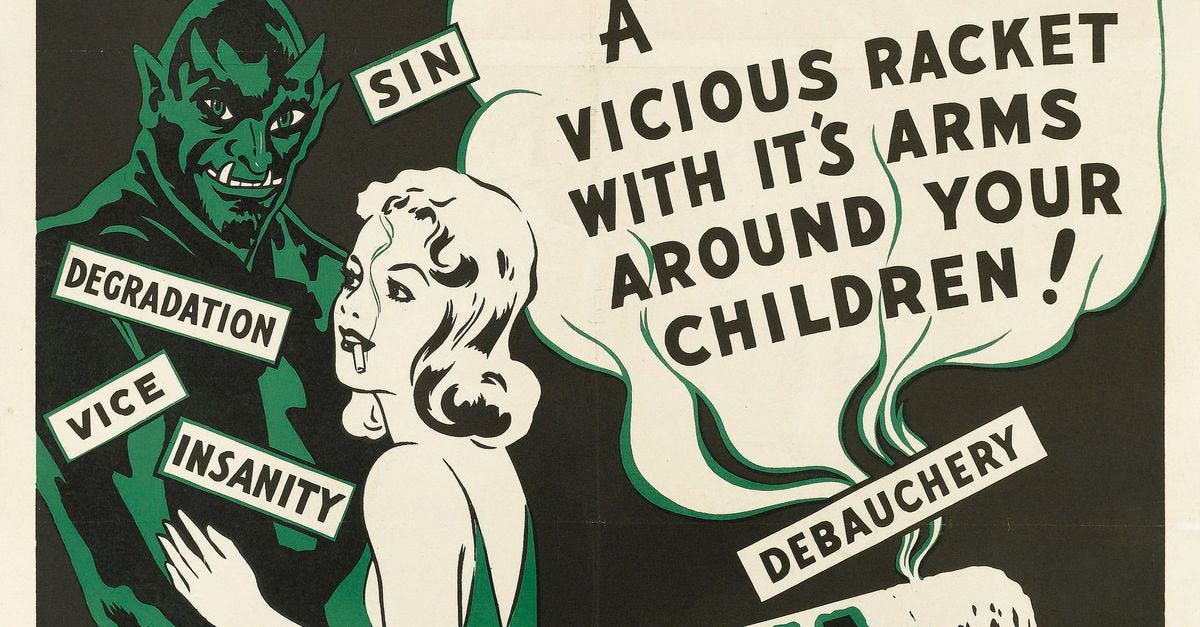THE hysteria surrounding teenagers alleged addiction to vaping in America has been branded "false" and "scaremongering".
A campaign by a string of US newspapers and media outlets in recent months against e-cigarettes and in particular vaping brand JUUL has spun out of control, according to industry experts and pro-vapers.
A backlash post in the Washington Examiner this week comes after recent headlines declared an "epidemic" of America's youth getting hooked on smoking and nicotine thanks to e-cigarettes and their tempting e-juice flavors.
It notes how teen smoking rates have actually plummeted to the lowest levels ever recorded according to the Centers for Disease Control and Prevention.
It also suggests that instead of trying to ban certain vaping products, government time and money should be spent instead on child-resistant packaging, market innovations such as devices which could be disabled on school property while parents need to be encouraged to have a stern word with their experimental teenagers.
Last week Time, the Wall Street Journal, NBC News, The New York Times as well as dozens of local newspapers and news broadcasters ran pieces on how teenagers were getting hooked on vaping.
"Slick, slender, and the newest craze among kids!" NBC recently declared. "I can't stop": Schools Struggling With Vaping Explosion, read a New York Times headline.
"It seems like it's just as bad as smoking a cigarette. Just kind of packaged prettier!" the mother of a high school teen was captured saying, without any facts or figures to back her claim.
But the Washington Examiner says America isn't in the grip of a moral panic but "a coordinated attack orchestrated by nanny-state activists funded by the likes of Mike Bloomberg".
"These crusaders are doing a great disservice to consumer freedom without regard for the truth or its impact on public health. We deserve better," reporter Paul Blair wrote."Despite a great awakening by a few well-intentioned parents, e-cigarettes and vapor products aren't new. They have been on the market for nearly a decade. During that time, teen smoking rates have plummeted to the lowest levels they've been in history" Even when youth experimentation with e-cigarettes rose between 2011 and 2015, cigarette use fell.
In fact, even experimentation with e-cigarettes fell in 2016, down to 11.3 percent from 16 percent the year prior.
It then explains how e-cigarette brand JUUL with over half of the market share has been "unfairly" demonized since other vaping products make up the remaining 45 per cent and are just as accountable.
Other electronic cigarettes including Vuse, Mark Ten, Logic, and NJOY are also sold in convenience stores across the country as a healthier alternative to traditional cigarettes for consumers aged 18 and above.
With calls now to ban the pocket-sized JUUL because of its size and range of flavors, experts say it isn't the answer.
"We live in times where our youth eat detergent pods and snort condoms as part of a larger internet-seeking fame epidemic."
Prohibition of these products would be silly, despite the demonstrable health risks associated with misuse. The measured and more appropriate response includes child-resistant packaging and a stern conversation between parents and their reckless experimental teens.
"For e-cigarettes, the former is already codified as a federal law. You can't legislate the latter," the report concluded.
Prominent pro-vaper Clive Bates said of the recent sleuth of headlines on social media Twitter: "A full-scale moral panic over @JUULvapor is developing among American tobacco control activists and their friends in the media - the aim is not what it seems"






Leave a comment
This site is protected by hCaptcha and the hCaptcha Privacy Policy and Terms of Service apply.